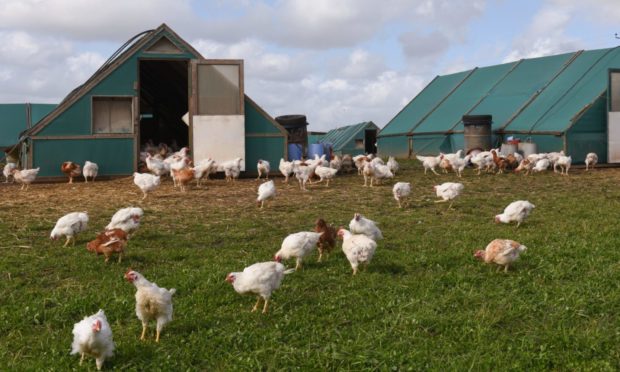The highly contagious bird flu, H5N1, has been discovered in a backyard flock of poultry in Collieston in Aberdeenshire.
Restrictions have been imposed on the property North Knapperna, near Ellon, to prevent a larger outbreak of bird flu across the Aberdeenshire region.
This includes culling the remaining birds at the premises and declaring a 1.8-mile protection zone and 6.2-mile surveillance zone around the infected premises effective as of March 11.
Within these zones, there will be restrictions on the movement of poultry, carcasses, eggs, used poultry litter and manure, and restrictions on bird gatherings.
The Avian Influenza and Influenza of Avian Origin in Mammals (Scotland) Order 2006 came into effect on November 29, 2021.
Birdkeepers and farmers must keep animals that may have been exposed separately housed, and away from wild birds to prevent avian flu from spreading further.
Public are reminded not to pick up or touch any dead or sick birds
The Scottish Government says the risk to the general public’s health from bird flu is said to be very low following the Aberdeenshire detection and is unrelated to Covid-19.
Avian flu is also not a threat to animal products available to consume including poultry meat and eggs.
Scottish Government rural affairs secretary, Mairi Gougeon, said: “To try to keep their birds safe and stop the spread of the disease, producers and bird keepers are reminded to comply with the housing order from last year.
“We ask that the public continue to remain vigilant and report any findings of dead wild birds to Defra’s national telephone helpline. Do not touch or pick up any dead or sick birds that you find.”
Scotland’s chief veterinary officer, Sheila Voas, said: “We have already made clear that all bird keepers – whether major businesses or small keepers with just a few birds – must ensure that their biosecurity is up to scratch to protect their birds from disease and prevent any contact between their birds and wild birds.
“Keepers who are concerned about the health or welfare of their flock should seek veterinary advice immediately.”

